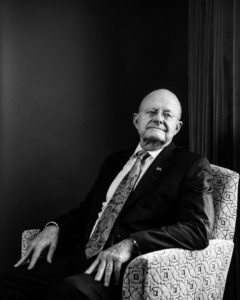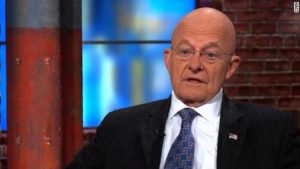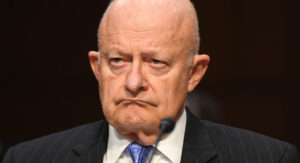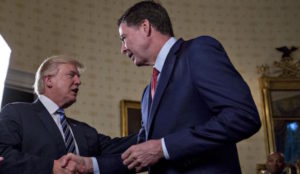When historians start chronicling the events surrounding Donald J. Trump’s time as president of the United States, they will face an enormous challenge in trying to find an answer to this question: How in the world did this man manage to get elected to the nation’s highest office?
An article about a former director national intelligence reminds me of what has perplexed, angered and outraged millions of Americans since the November 2016 presidential election.
James Clapper has written a memoir that tells of how his post public service life took a dramatic turn when Trump won that election. Clapper wanted to retire quietly and “clean out my basement.” He has remained in the public eye while becoming a ferocious critic of the president.
He considers Trump a threat to national security. The president has embraced Russia, the nation that — in Clapper’s view — meddled in our electoral process and well might have produced a Trump victory. As Clapper told Wired: As Clapper writes, in explaining his decision to write a memoir, Trump’s embrace of Russia “made me fear for our nation.”
Trump doesn’t speak the truth. He cannot tell the truth. His aim is to twist facts to enrich his own standing. He thinks first of himself and then, if he thinks at all about the nation, he gives a cursory nod to the well-being of others. That’s according to Clapper.
Is the former DNI perfect? Has he always been totally truthful himself? He acknowledges misspeaking during a Senate hearing in 2013. Wired reports: He duly addresses his much-criticized and picked-over comment in a 2013 hearing where he appeared to mislead Senator Ron Wyden about whether the NSA gathered call details on American citizens. He later said that he misunderstood which program Wyden was asking about and that he couldn’t later correct the record because of the demands for secrecy.
No one is perfect, right?
Still, I give a retired Air Force general — and a veteran of intelligence work at the highest levels — a fair amount of credence when he speaks of the shortcomings he sees in the president of the United States.
Again, from Wired: The truth, Clapper argues time and again, is critical. “I don’t believe our democracy can long function on lies,” he writes. “I believe we have to continue speaking truth to power, even—or especially—if the person in power doesn’t want to hear the truth we have to tell him.”
Read the Wired piece here.
Presidential historians will have their hands full, indeed.







